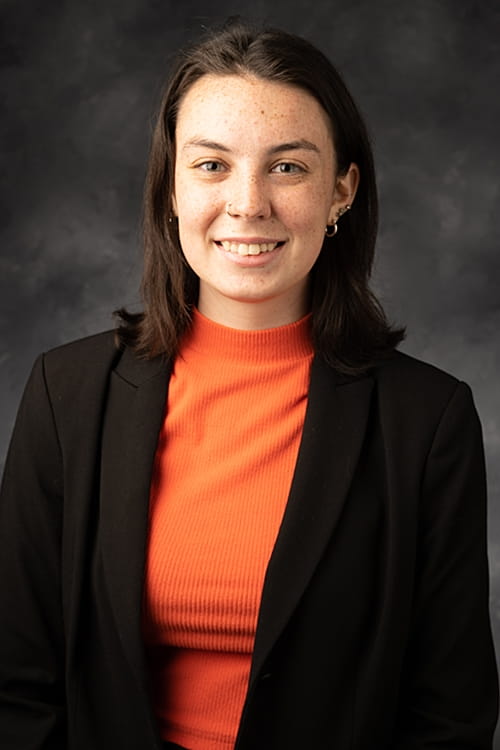
Emma Treco, Undergraduate student, microbiology
Deciphers immune signaling
“Emma is truly a superstar in the lab, she excelled in everything she did and was able to work independently most of the summer, while remaining an excellent team player. Every facet of her performance in my lab reflected her wholehearted dedication to the process. Emma is exactly the type of student who will excel as a physician scientist—bright, thoughtful, and motivated. “ -Kelly Messingham, research professor, dermatology
Hometown: Naperville, Illinois
Faculty mentor/advisor: Gail Bishop, PhD, professor, microbiology and immunology, Carver College of Medicine
What is your degree program and expected graduate date? Microbiology, BS, expected graduation May 2023
Please describe your research: B cells are the type of immune cells that produce antibodies, and to do that, their B cell receptor must receive signals for activation and differentiation. One important player in B cell signaling is a protein called TRAF3 which, when absent, causes spontaneous development of autoimmune disease symptoms and B cell cancers. I am studying what happens when TRAF3 is simply decreased and not eliminated completely. Does it have the same effect as absent TRAF3, and how much TRAF3 is needed for normal functioning?
In simple terms, why does this research matter? This research matters because there is an increasing number of complicated immune-deficient patients found with a partial loss-of-function TRAF3 mutations. Additionally, there are B cell malignancies with loss-of-function mutations in one or both TRAF3 alleles, especially in cases of multiple myeloma. Lastly, preliminary work has suggested that B cell TRAF3 levels may decline with age. All these things make studying this effect important.
How soon after starting at the University of Iowa were you able to participate in research? Due to COVID-19, I was not able to start research my first year, but I was able to begin research the summer after my second year.
How has being involved in research made you more successful at the University of Iowa? Being involved in research has allowed me to be in contact with many amazing people and ideas that I otherwise would not have encountered. It has also challenged my way of thinking and helped me develop new ways of approaching questions and problems.
What are your career goals and/or plans after graduation? After graduation, I plan on continuing research in the field of immunology for a year, then matriculating into an MD/PhD program. I hope to one day teach at the collegiate level and lead immunology research that is relevant and meaningful to my patients.
Banner location: not on display—
